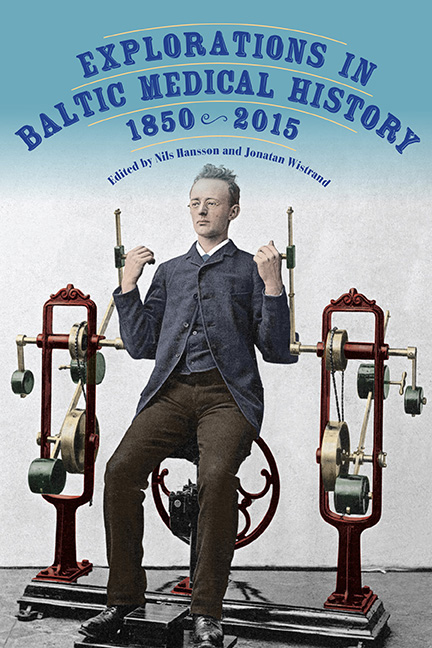3 - Worlds Unexplored: Medicine in Stettin, 1800–1945
Published online by Cambridge University Press: 17 April 2021
Summary
When discussing the place and significance of Stettin/Szczecin in the medical history of the Baltic Sea region in 1850–2000, one must begin by pointing to a crucial difference between the German city of Stettin and the Polish city of Szczecin: there is a medical university in Szczecin, whereas no pregraduate training of physicians took place in Stettin. Since the establishment of the Akademia Lekarska (Medical Academy; now Pomorski Uniwersytet Medyczny, Pomeranian Medical University; hereafter PMU) in 1948, and especially since the fall of communism and the opening of the borders at the turn of the 1980s and 1990s, Szczecin has had both the means and opportunities to participate actively in an international and constantly growing exchange of people, thoughts, and ideas. The PMU's (and thus Szczecin’s) participation in the transfer of medical knowledge in the Baltic Sea region is evident and significant on many levels. Students from Norway, Sweden, and Germany come to PMU to study medicine (the English program was established in 1996) and dentistry (established in 2002). Within the Erasmus+ program, PMU cooperates with, among others, the medical faculties at the universities of Greifswald, Leipzig, and Würzburg in Germany; Linköping in Sweden; and Trondheim in Norway. There are postgraduate medical education exchange programs, with PMU hosting trainees from countries in the Baltic Sea region, and Szczecin's medical professionals pursuing training in Germany, Sweden, or Norway. PMU's researchers have designed or participated in multiple international research projects in collaboration with colleagues from other academic centers in the Baltic Sea region. Last but not least, PMU's scientists publish a great deal, with some of their writings read, discussed, and referred to worldwide. One of the most spectacular examples is the Very Small Embryonic-Like (VSEL) stem cell research by Prof. Mariusz Z. Ratajczak and his team, with VSELs alleged to be nonexistent by some scholars, and proven to be real by others. Another example of Szczecin's significant contribution to the transfer of medical knowledge at an international level (including the Baltic Sea region), is the PMU's International Hereditary Cancer Center, directed by Prof. Jan Lubiński, and Hereditary Cancer in Clinical Practice, an internationally recognized journal that is frequently chosen by authors from Baltic Sea countries for publication of their work.
- Type
- Chapter
- Information
- Explorations in Baltic Medical History, 1850–2015 , pp. 63 - 86Publisher: Boydell & BrewerPrint publication year: 2019



